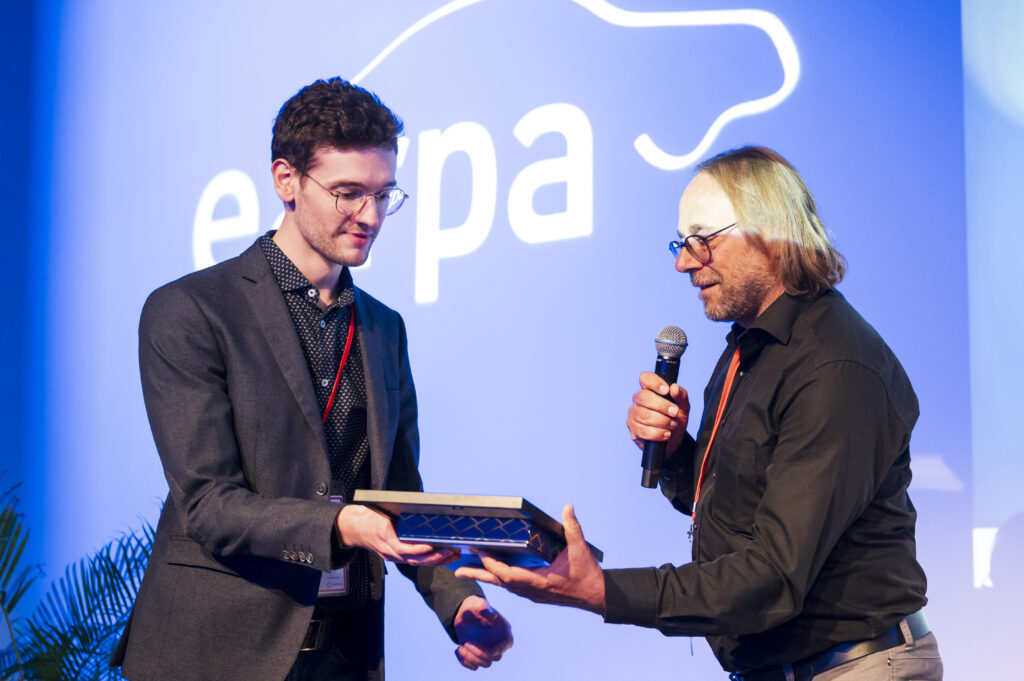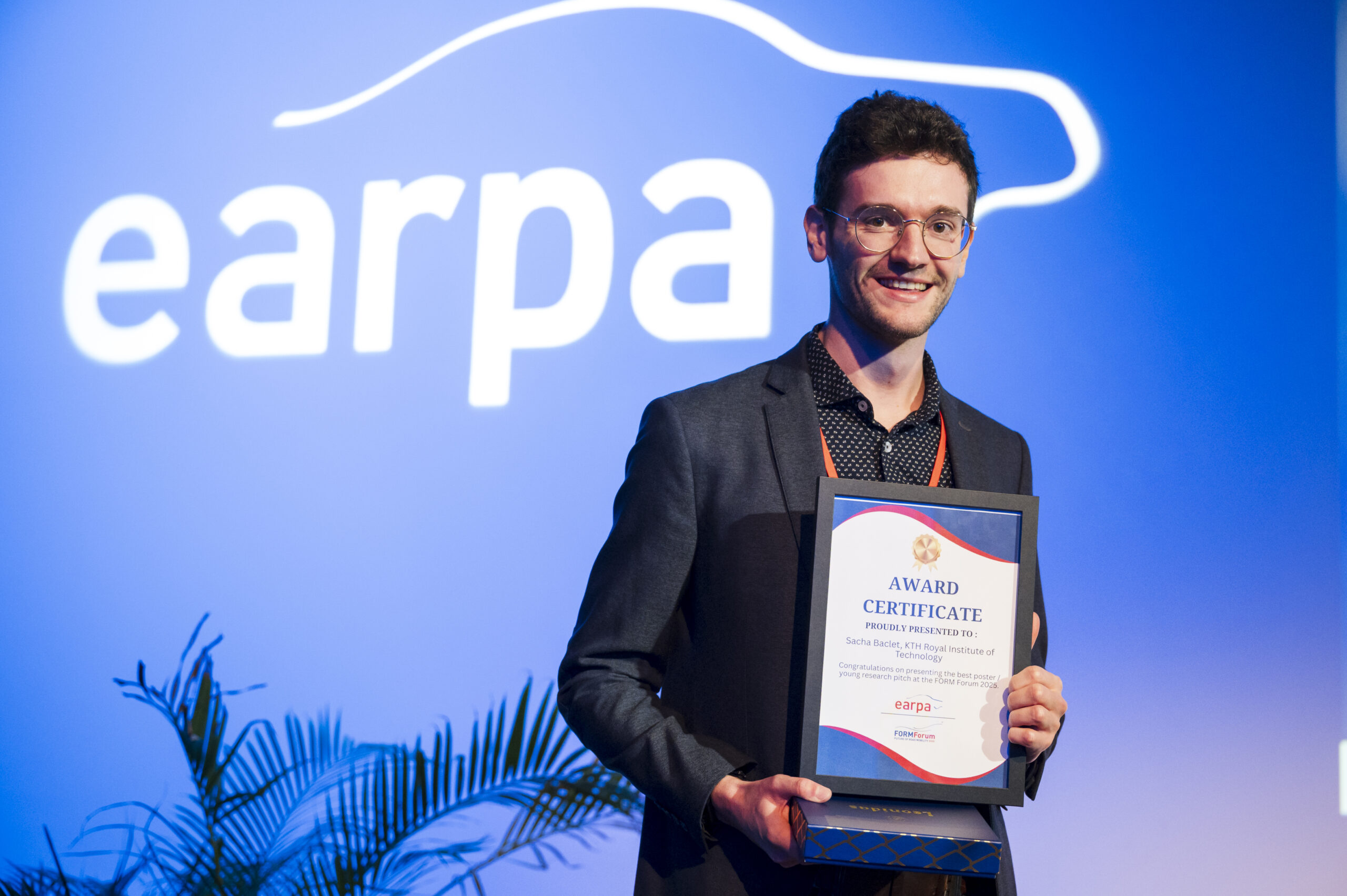Brussels, October 2025 — KTH young researcher Sacha Baclet has been awarded the prize for “Best Young Researcher Elevator Pitch” at the EARPA Future of Road Mobility Forum, held in Brussels on 30 September – 1 October 2025. The event gathered leading European experts and institutions to discuss the future of sustainable mobility, where KTH represented its membership in EARPA.
Sacha, together with Siddharth Venkataraman, both supervised by Digital Futures Faculty member Associate professor Romain Rumpler is engaged at the Centre for ECO2 Vehicle Design at KTH. The Centre brings together academic and industrial expertise in aerodynamics, acoustics, vehicle dynamics, lightweight structures, life cycle analysis, and sustainability to address complex cross-functional challenges in vehicle design. By resolving these, the Centre aims to enable resource-efficient vehicles and contribute to a sustainable Sweden. Sacha, Siddharth and Romain also belong to the Marcus Wallenberg Laboratory (MWL) for Sound and Vibration Research at KTH.
In his award-winning pitch, Sacha presented their joint research and vision for real-time analysis of traffic, noise, and emissions, made possible through a low-cost acoustic sensing technology developed in collaboration with the City of Stockholm as part of Digital Futures projects. Their work combines AI, sensor data, and traffic simulation to create smarter, more sustainable urban mobility systems. So far seven sensing nodes have been deployed in Stockholm (in Hornsgatan and Östermalm) and provide traffic and noise data in real time. Several more will be installed in the coming months, in particular in the environmental zone on Östermalm.

The presentation drew upon results from projects funded by Digital Futures, KTH–City of Stockholm collaborations:
- SENZ-Lab (Stockholm Environmental Zone digital Laboratory) — developing a cost-efficient, real-time sensing framework for monitoring traffic, noise, and air pollution in Stockholm’s Environmental Zone Class 3. Using acoustic sensors and AI-driven modelling, the project aims to build a 2D digital twin of city traffic to support data-driven urban policy and emission reduction.
- GEOMETRIC (GEO-based Multi-layer Environmental Modelling of Urban Traffic) — creating a dynamic, multilayer modelling framework to optimize urban traffic control and reduce congestion, noise, and pollution. The project integrates sensor networks, real-time traffic data, and environmental simulations to advance the vision of smart, sustainable cities.
Both projects are strong examples of interdisciplinary approach, integrating acoustics, geoinformatics, AI, and systems science to provide actionable insights for city planners and policymakers.
– Sacha’s award is a great recognition of the creativity and impact of our young researchers, said Romain Rumpler. Their work with the City of Stockholm demonstrates how academic research, when connected with real-world challenges, can lead to tangible innovations for cleaner, quieter, and more sustainable mobility.
– This recognition highlights the growing interest of the industry, the research community, and public authorities for better traffic and urban pollution monitoring, added Sacha Baclet. Our goal is to deploy these low-cost sensors in even more locations, in collaboration with municipalities, to allow real-time environmental analysis and support sustainable urban planning.





